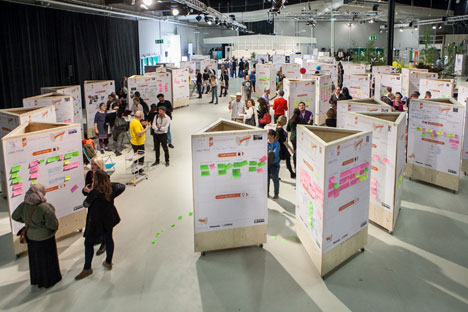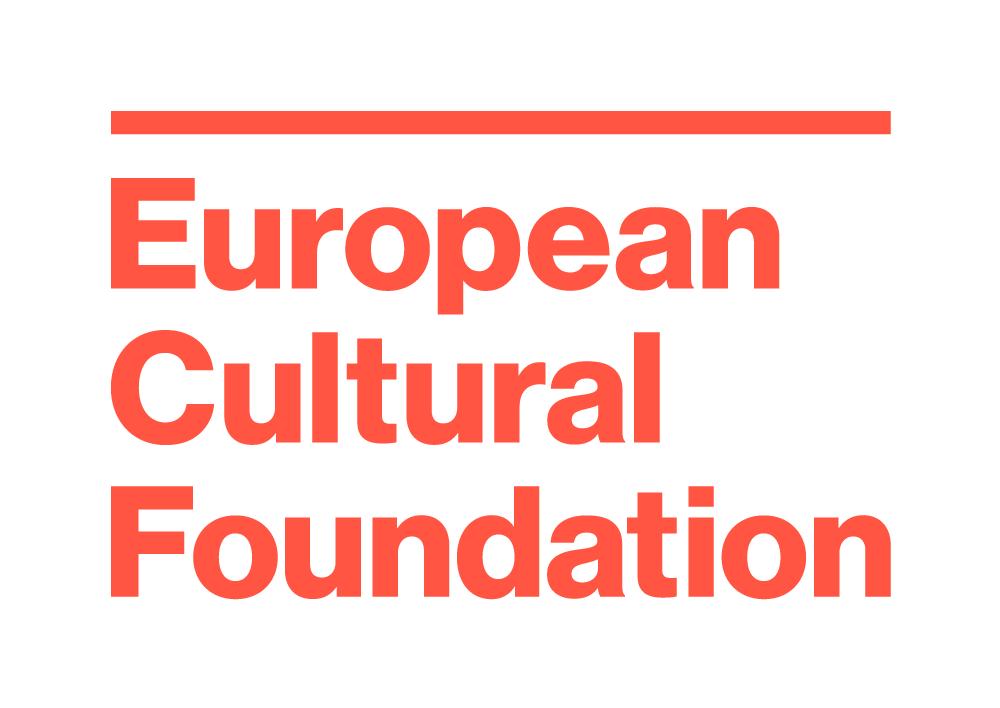New models of governance of culture
Bottom-up cooperation between the independent cultural sector and domestic and European institutions can lead to both the decentralization of cultural production and the democratization of culture. So says Katarina Pavi of the Croatian cultural hub organization Culture 2 Commons.
The democratic deficit is a matter of culture
The crisis has had numerous negative effects in many vital sectors of European societies, but it has simultaneously revealed the existence of a serious democratic deficit in today’s European societies. This deficit is not a completely new discovery, but the recent developments in the political arena and their repercussions on the streets of various European cities point to real reasons to fear that the gap between the decision-makers and the citizens is liable to grow even wider in the near future.
Art and culture are not, and cannot be, excluded from the overall context of the afore mentioned issues, not only because the results of the crisis (often represented solely as red figures) are having negative effects on different aspects of cultural and artistic production, but also because ultimately, the culture crisis directly deprives the most vulnerable groups of their fundamental cultural rights. These groups embrace a range of artists and cultural operators, as well as many other citizens affected by policies that restrict their participation in cultural and social life. The threatened closure of 20 per cent of public libraries in the United Kingdom is only one highly publicized example of the current state of art in this respect,1 and throughout the continent and the world there are probably even more dramatic cases of cultural deprivation of citizens of which we may not be aware, as well as examples of improvements in terms of new governance models deriving from civil engagement. A look at the approach adopted in Croatia and other countries of the region can serve as a paradigm for the development of cultural policy-making under the pressure of a permanent, structural crisis, at the same time providing an encouraging example of practice in organising citizens for the purposes of democratizing the public cultural sphere2 and closing the gap between institutions and non-institutional cultural players.
The regional view
Where cultural policy-making in the former Yugoslav countries is concerned, the current crisis has exacerbated the ongoing deficiencies in cultural systems, which had been changing very slowly over the past 20 years, since the dissolution of the common State and the violent conflicts that have marked the region’s recent history. Apart from financing independent organizations’ programmes with modest shares of the state budgets,3 the main instruments of cultural policies in all the countries of the region are still predominantly based on servicing the many traditional public cultural institutions, most of which are deemed remote from the citizens and closed to specific groups of artists, as well as lacking in public participation and transparency in governance. New ideas and demands for reforms and new cultural policy measures have begun to emerge in some countries in the region, and the main protagonists for change are usually the organizations and individuals working in the independent cultural scene.
Most of the organizations forming today’s independent cultural scene emerged at the end of the 1990s on the back of the democratization movements that were sweeping across the region, perpetuating the tradition of the alternative cultural and artistic movements in the previous decades. Very broadly, this scene includes a number of different organizations and initiatives operating across all contemporary artistic and cultural forms of expression. Their work is based on the interdisciplinary approach and experimentation at the intersection of contemporary art and popular culture, and on active engagement in the local communities. At the turn of the millennium, independent cultural organizations began to spring up all over the region. They multiplied not only in quantity but also as regards the diversity of their activities and geographical dispersion, especially after most of the region’s countries adopted new laws or significantly liberalized existing legislation on citizens’ associations. This was when these organizations took their first steps towards building strategic partnerships in order to become relevant actors in the cultural policy field, endeavouring to redefine the cultural systems by promoting the participatory approach to cultural policy-making.4
Independents united
In addition to demanding new cultural policy reforms, the independent cultural scene initiated a number of measures geared towards bridging the gap between independent and institutional cultural production, as well as that between the perceptions of producers and consumers of arts and culture. The foundation of the Clubture network in Croatia was one of the major steps in this direction. Established in 2002 as a platform for direct cooperation between organizations and the formulation of joint programmes, Clubture has achieved significant results in terms of democratizing culture and decentralizing cultural production in Croatia. Over the ten years in which it has continuously run its key programme “Clubture-HR: programme exchange and cooperation”, which is based on joint decision-making and peer-to-peer cooperation between organizations, over 1300 different cultural and artistic events have been organized in almost all the cities, towns and villages nationwide, directly involving over 100 organizations and actively engaging thousands of citizens.5
The living, active and heterogeneous structure of the organizations in the platform have made Clubture a catalyst for cooperation and a focal point for bringing in independent cultural organizations from beyond the Croatian borders. Over the years, Clubture has developed other programmes aimed at strengthening capacities, public visibility and the influence of the independent cultural scene in Croatia, including a range of meticulously designed educational programmes that aim to improve the organizations’ capacities for strategic management and public promotion of cultural policies.
At the same time, the Clubture network has pioneered the promotion of regional cooperation by involving independent organizations from across the region in an informal cooperation platform. Clubture has also gained international recognition with the first ever coordinated action by regional actors and the European cultural policy-making institutions, involving a public consultation procedure for over 70 organizations from different countries in the region. The action led to the adoption of a series of mutual policy recommendations calling for the implementation of concrete measures to help develop regional cooperation and build partnerships between cultural organizations from the region and the rest of Europe.6
Towards new models of cultural institutions
A gradual process of networking, mutual sharing of values, knowledge and skills and joint programme production by independent cultural organizations was followed by a drive to create partnerships with strategic civil society organizations active in other important spheres of social life (youth rights, environmental conservation and good governance) and with experts in cultural and other relevant public policies. These major efforts to organize a tactical model for change were also accompanied by a whole range of awareness-raising activities involving active engagement with the public, in terms of both participants and audiences and of decision-makers and public cultural administration. Using tactical networking – bringing together independent cultural organizations, artists and experts, and later on developing partnerships with other important societal actors – the independent cultural scene developed a holistic approach to the public cultural sphere, which, far from being isolated from its social context, constitutes its most dynamic part, with the potential to effect a tangible societal transformation.

A scene from ECF’s Idea Camp in Botkyrka, Sweden, in September 2015. Photo: Julio Albarran.
Thanks to these methods, the independent cultural organizations have demonstrated that the effort to democratize the public cultural sphere is part of a broader struggle for the common weal, primarily fighting corrupt practices in public governance.7 In this connection, they have launched a long-term campaign in Zagreb opposing the alliance between the city authorities and investors, which has devastated the city centre pedestrian zone. After almost six years of constant endeavours to bring about genuine changes in the system – during which time the independent cultural organizations have been penalized or otherwise put under pressure because of their engagement, mainly through budgetary cuts in financing their programmes, but also by means of intimidation and negative media campaigns – reforms and major steps towards developing new models of governance and cultural policies have now begun.
Time for transformation
The most useful changes in this field took place in Croatia with the introduction of the first hybrid cultural institution, POGON – the Zagreb Centre for Independent Culture and Youth. This is the first ever cultural institution based on a new model of public-civil partnership established and managed jointly by the local association of cultural and youth organizations, Alliance Operation City and the City of Zagreb. POGON was established at the end of 2009, and has gained a great deal of influence in the local Zagreb context, where a great many organizations have regular recourse to its material resources for various activities involving the local citizens. The arrival of POGON in Zagreb has also raised the question of the requisite role of the public cultural institutions in the community, as well as that of their openness to changes in governance and programming.8
Another cultural policy reform measure initiated by the independent cultural actors has been the newly established “Foundation Kultura Nova”,9 a novel institutional format geared towards promoting the development of cultural civil society in Croatia. The Foundation will support cooperation projects between organizations in Croatia, at the national level and on the regional front, it will help develop cooperation between different sectors and provide operational support to foster organizational development.
Conclusions and recommendations: The deficit is not just a problem for others
The cooperation and mutual advocacy practices developed by the independent cultural scene in the former Yugoslav countries have shown that reforming policy measures via bottom-up processes can achieve positive results in terms of narrowing the gap between institutions and non-institutional actors and directly influencing people’s sense of ownership of cultural and other common goods. At the same time, these joint actions help develop dialogue and partnerships between all the stakeholders in culture, thus reducing the democratic deficit by emphasising the active role played by citizens in decision making. Even though the above-mentioned experiences are peculiar to the independent cultural scene and its specific practices, their repercussions are felt in other vital spheres of cultural and political life, as the potential for reform are transposable beyond both the field of cultural and artistic production and the borders of any specific region.
We would accordingly encourage decision-makers and all other relevant stakeholders, especially those from countries in the region of former Yugoslavia, to strive to increase cultural participation by citizens, primarily by supporting critical art and culture produced by independent groups of artists and cultural workers, targeting active engagement with citizens as participants, experts, decision-makers and others. In order to bridge the gap between isolated cultural institutions, artist and citizens it is also important to secure the genuine, meaningful involvement of cultural civil society in cultural policy-making, especially by supporting bottom-up initiatives with transformative potential for cultural systems, for the benefit of all.
Furthermore, it is necessary to support, jointly develop and implement policy measures conducive
to the realization of the aforementioned aims, as initiated by civil society actors:
– Bridging measures and structural solutions to facilitate the decentralization of cultural production and democratization of culture by means of cooperation among cultural organizations affecting citizens in different communities;
– New types of cultural institutions based on public-civil partnership, applying the principles of co-management open to different groups of artists and citizens;
– New types of cultural policy instruments conducive to further development of the independent cultural scene and of cooperation among cultural organizations, but also between cultural organizations and other important stakeholders in the social, political and cultural sphere.
In this light, it is especially important to emphasize the need to support cultural cooperation within the region’s independent cultural scene and between the region and the rest of Europe. Joint work, transfers of experience, knowledge and practices, and the involvement of more citizens and other relevant stakeholders in the various countries of the region can ensure a knock-on effect and the multiplication of the beneficial effects on cultural policy development that are already emerging in some of the region’s countries.
Further resources
To view an interview with Katarina Pavi at the ECF’s 2015 Idea Camp in Botkyrka, Sweden, click here.
For more on the cultural public sphere and the challenges determining relationships in this field, see Jim McGuigan, Rethinking Cultural Policy, Open University Press, 2004
The situation varies significantly among the different countries in the region, with instruments of cultural policies being most highly developed in Slovenia and Croatia. All the countries of the former Yugoslavia still have many similarities in their main characteristics, including the overall organization of cultural policy systems.
Cf. Emina Vini, "A bottom-up approach to cultural policy-making, independent culture and new collaboration practices in Croatia", Ecumest/ECF/The Clubture Network, 2008.
Cf. Dea Vidovi at al., "Clubture -- Culture as the process of exchange 2002--2007 (The Clubture Network, 2008).
Cf. Katarina Pavi and Milica Peki, Exit Europe: New Geographies of Culture (The Clubture Network, 2011) and exiteurope.net/.
In 2006, independent cultural organizations in Croatia initiated the Right to the City initiative, one of the most publicly visible civil initiatives in Croatia and the region, which is active combating against corrupt practices and promoting preservation and good governance of public spaces in Croatia. For further information, see pravonagrad.org/.
Cf. Celakoski et al., Open Institutions: Institutional Imagination and The Cultural Public Sphere (Alliance Operation City, 2011) and openinstitutions.net/.
The Croatian Parliament adopted the law on the "Foundation Kultura Nova" in July 2011; the Foundation is currently making the final arrangements to begin operations.
Published 26 April 2016
Original in English
First published by Council of Europe's Culture Watch Europe Programme and ECF / Krytyka Polityczna (eds.), Build the City: Perspectives on Commons and Culture, 2015
Contributed by European Cultural Foundation © Katarina Pavić / European Cultural Foundation / Eurozine
PDF/PRINTIn collaboration with
In focal points
- The city belongs to all of us
- No collaborative economy without commons
- Polish culture is turning barren
- Creating the commons in Spain: The current state of play
- Creating the commons in Moldova: The current state of play
- A rough guide to the commons
- New models of governance of culture
- The power to refuse
- Culture WITH people, not just FOR people!
- When commoning strategies travel
Newsletter
Subscribe to know what’s worth thinking about.
Related Articles

On making commons concrete
The Dutch Review of Books 2/2021
‘The Dutch Review of Books’ presents: the commons, vying for legitimacy between state and capitalism; the void of societal responsibility for #MeToo; and African oral traditions evident in rap music.

Democratic ‘Third Places’
dérive 10–12/2020
Urbanist magazine ‘dérive’ on emancipating Brazilian museology; the potential for Polish cultural centres; Swiss commons as a transferable prototype; and post-explosion Beirut.






